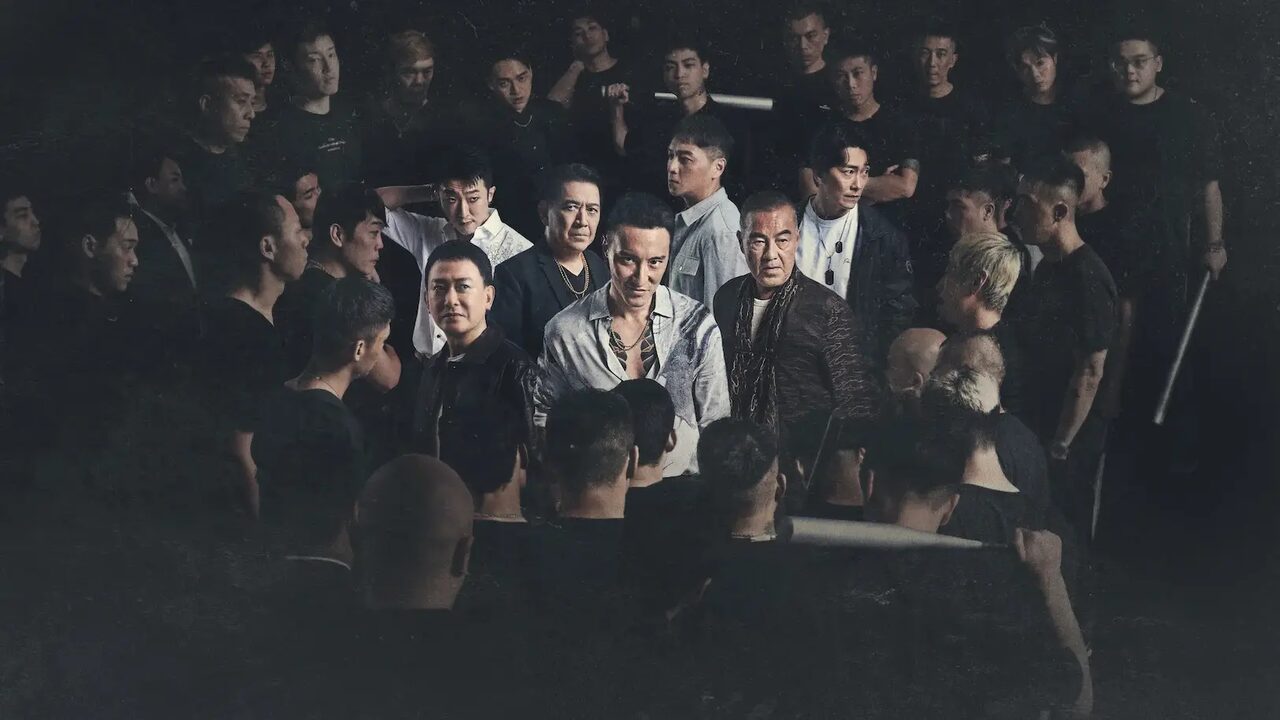
There’s something oddly comforting about a gangster movie that doesn’t try to reinvent the wheel but spins it with its own kind of rough precision. "Gatao: Like Father, Like Son" lands right there. It’s loud, intense, brooding, and emotionally taut. It knows what it is—a gangland story soaked in loyalty, betrayal, and blood—and it leans into it without hesitation.
Michael, played by Sunny Wang, is not the usual smirking antihero with a golden heart. He’s sharp, decisive, and clearly aware that power doesn't come from inherited titles alone. After the death of his father, a well-known Gatao (gang leader), Michael inherits more than just a legacy—he inherits enemies, rivalries, and a city at war with itself. And yet, he doesn’t walk around carrying his father’s name like a shield. He wants to lead, but he wants to do it his way.
The film throws us straight into gangland politics—power shifts, uneasy alliances, betrayal simmering under forced smiles. Michael is now the head of the Daqiaotou gang, one of the city's dominant forces, but that doesn’t mean he’s untouchable. On the other side are rival gangs like Beicheng and Beiguan, led by men who don't take kindly to youthful idealism or any deviation from how things have always been done. The result is a steady drumbeat of tension and strategic warfare that explodes every so often into violence.
There’s a lot going on here—ambushes, setups, sit-downs, and escalating violence—but what makes the movie work is how it roots all this chaos in character. Michael isn’t simply trying to win turf; he’s trying to become something his father never was: a leader who inspires fear and loyalty without cruelty. But that’s easier said than done when everyone around you believes survival depends on brutality.
The supporting cast gives the film texture. Cheng Jen-shuo’s character is a walking contradiction—tough as nails but with surprising emotional depth. His interactions with Michael add a layer of complexity, especially when their definitions of loyalty begin to diverge. Jack Kao, playing an elder statesman of the gang world, adds gravitas every time he’s on screen. His scenes feel like a masterclass in controlled tension.
One of the film’s biggest strengths is how it looks. The cinematography doesn’t glamorize the gang world; it drenches it in greys and muted tones. There’s an ever-present feeling of dusk—of a world on the edge of darkness, slipping further in. Alleyways, backrooms, and empty streets are shot with a tight frame, keeping everything claustrophobic, like the characters can’t ever escape this life. The fight scenes are brutal but not flashy. When someone gets hit, you feel it in your jaw. There’s no slow motion, no gratuitous flair. Just ugly, efficient violence that’s grounded in realism.
What also stands out is the music—or the strategic use of silence. When emotions run high, the film often lets the tension breathe without rushing to fill the space. It’s in those silences that the emotional weight settles in: the grief, the regrets, the questions that can’t be answered with a gun.
Of course, no film is flawless. At times, the story feels like it’s juggling too many threads. There are subplots involving internal betrayals, Michael’s childhood flashbacks, and police pressure that occasionally clutter the pacing. The film wants to be an epic, and in trying to give every character a meaningful arc, it slightly dilutes the intensity of the main plot. A few characters enter and exit the story with barely enough screen time to make an impression.
Also, while the film is refreshingly straightforward in its style, a few of its dialogues lean toward the obvious. There are moments when characters state things that are already apparent, which could have been better shown than told. The audience is smart—we don’t need a reminder every time someone’s loyalty is in doubt.
Still, those are small gripes in a film that delivers so much. “Gatao: Like Father, Like Son” is not interested in moralizing or offering easy answers. It knows that in this world, right and wrong are luxuries few can afford. It’s a film about choices, about legacies we inherit and those we create, and the cost of each. And it’s told with enough bite, emotional grit, and stylish violence to keep you thoroughly engaged.
If you’re expecting a polished, clean-cut gangster story, this isn’t it. But if you’re ready for something that feels lived-in, charged, and emotionally resonant, “Gatao: Like Father, Like Son” delivers. It’s not just another entry in the Gatao franchise—it might just be its most compelling chapter yet.
Final Score- [7/10]
Reviewed by - Anjali Sharma
Follow @AnjaliS54769166 on Twitter
Publisher at Midgard Times
Get all latest content delivered to your email a few times a month.
Bringing Pop Culture News from Every Realm, Get All the Latest Movie, TV News, Reviews & Trailers
Got Any questions? Drop an email to [email protected]